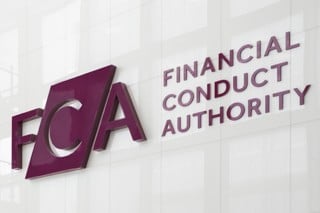In its latest Spotlight on Finance and Insurance, AM examines fears that the regulator's views on Guarantee Asset Protection’s value to consumers may kill off a product once hailed for its profitability. Tom Seymour reports.
The future of Guaranteed Asset Protection insurance, or GAP as it’s widely known, is seriously in doubt.
Within the past few weeks it has been announced that eight out of 10 insurance firms have agreed to pause sales of GAP insurance at the request of the Financial Conduct Authority (FCA).
The FCA says it will carry out a second round of discussions with those GAP providers that will continue selling the product although it adds that these have agreed not to use new GAP distributors in the interim.
The pause comes on the back of an ultimatum issued back in September by the FCA calling for all involved to “demonstrate fair value” for the product.
At the time the FCA intervention stunned the industry and the silence since has been deafening. Even the Association of British Insurers (ABI) is reluctant to comment.
Silence
AM approached numerous dealers and GAP insurance providers in relation to this article and no one was prepared to talk on the record about the future viability of GAP as a product, the impact this might have on dealers’ finance and insurance (F&I) income or whether removing the product from sale is going to leave customers unprotected.
GAP insurance, sometimes known as return-to-invoice (RTI) cover, is an add-on to motor insurance that covers the difference between a vehicle’s purchase price and its current market value.
It means that if a vehicle is involved in an incident where it’s written off, the claimant will get back exactly what they paid for it at the time of purchase, rather than what that vehicle is worth at the time. So, customers with cars on finance can be confident of clearing the balance owed, for example.
The FCA said back in September that there had been cases where only 6% of the amount customers paid in premiums was paid out in claims with some firms paying out up to 70% of the value of insurance premiums in commission to parties in the distribution chain, such as dealerships.
The regulator said it would give the industry three months to take action or risk an intervention.
Matt Brewis, FCA director of insurance, said at the time: “This is an early signal of the work we’ll be doing under the Consumer Duty.
“Customers should be reassured that we’re in their corner and are taking action where we see poor value being provided.
“If firms are unable to prove they’re providing fair value to their customers, they should expect further action from the regulator.”
Fair Value
In 2021, rules were introduced requiring insurers to ensure their products provide fair value, which included submitting regular “value measures data” to the FCA.
These figures, which were recorded between January and December 2022, show that GAP insurance, when sold as an add-on, had a claims frequency of 0.34%. There were 567,895 policies in force which represented a value of almost £75 million. The percentage of premiums paid out in claims was 4.37% over that 12 month period.
While the FCA is clearly not happy with these ratios, data provided to AM by the Financial Ombudsman Service (FOS), shows there were fewer than 30 GAP insurance complaints for the first and second quarter of this financial year.
There were 84 complaints recorded against GAP firms between April 2022 and March last year.
The period covering the data isn’t like-for-like against the FCA’s value measures data, but it’s clear to see that there are hundreds of thousands of policies sold and a relatively low number of complaints from customers about the product.
The total number of complaints in relation to GAP has also been falling over the past few years, down from 230 complaints between 2018 and 2019.
Though that doesn’t necessarily mean there is nothing to address from the FCA’s perspective.
Within those relatively small number of complaints about GAP, the FOS did say it recorded issues around delayed claims, declined claims, the value of claims and cases of mis-selling.
GAP providers that offer the product online (rather than as an add-on at the point of sale in the showroom), have hit back at what they see as an ‘irresponsible’ warning from the FCA.
Messaging
Simon England, founder and managing director of online car GAP insurance provider ALA Insurance, spoke about the FCA’s messaging back in September 2023 back when the FCA first issued its warning to GAP insurers to provide proof of fair value.
At the time, England said the FCA's messaging "barely recognises the hard work online providers do to provide reliable and honest coverage for their customers”.
He added: “I would go as far to say that the FCA’s warning about GAP is irresponsible. The warning does little to differentiate between reputable online providers and dealerships and the third parties that these inflated costs really apply to.
“The FCA is going against its own goal to provide consumers with positive outcomes by giving out blanket ultimatums to an entire industry which could put drivers off policies which, when handled with integrity, are designed to protect us.”
One AM100 dealer, who prefers not to be named, says: “I actually think the product is a good one when it’s sold and priced in the right way.
“You’re covered by most road risk insurance providers for the first year, anyway, if your vehicle is written off, so you’re doubling up on insurance in that first 12 months if you take out GAP as well.
“But, in month 13, if something happens and you are covered, the customer would think it was the best product in the world.”






















Login to comment
Comments
No comments have been made yet.